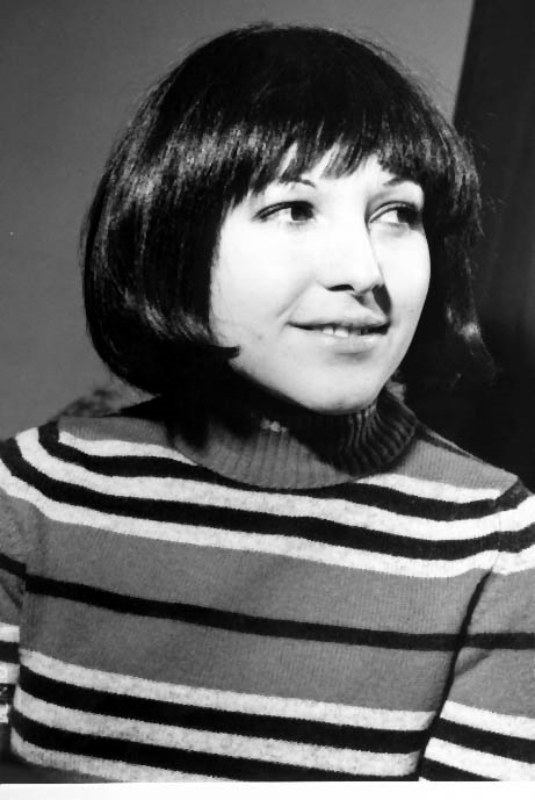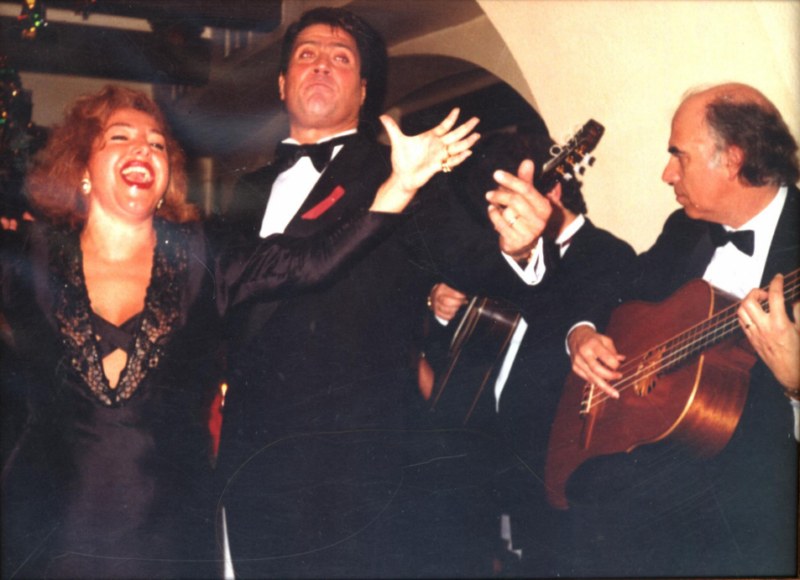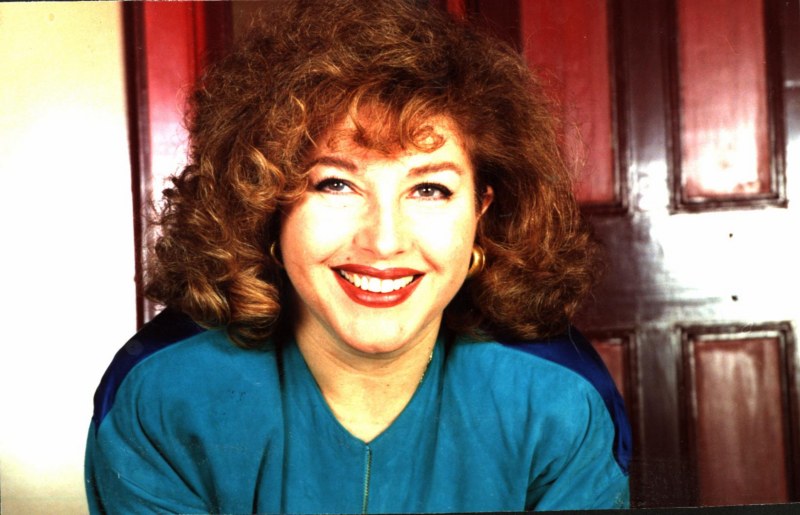Know more:
Lenita Gentil
(N. 6 August, 1948)Lenita Gentil was born in Marinha Grande, where she lived until she was 14 years old. She then moved to Porto, due to family issues. During this period the maestro Resende Dias, a friend of her father’s, hears Lenita sing, praises her for always being in tune and encourages her to sing. He enrols her in Serões para Trabalhadores, broadcast by Emissores do Norte Reunidos, at she debuts at Palácio de Cristal at 17 years old.
This debut is followed by the first invitations to perform in TV; the most important is a TV premiere at the show "Riso e Ritmo" (1964), by Francisco Nicholson and Armando Cortês. “From then on, I never stopped again, with TV shows, records, song festivals, inside and outside…”
Lenita Gentil enters the Song Festival of Figueira da Foz (1967), and wins the Song Festival of Costa Verde, in Espinho (1968). That same year she receives the Light Music Award, in the Singing category, given by Casa da Imprensa. She also performs at the RTP Song Festival in 1971 and 1989.
In 1966 and 1968, Lenita wins the Festival of Aranda del Duero (Spain) and represents Portugal in other international festivals held in Mexico, Poland, Romania, and at the Song Olympics, held in Greece, where she receives the critics’ award. She considers these experiences very stimulating to her artistic pathway. Simultaneously, she had two significant performances in other areas, on in the movies, in "Os toiros de Mary Foster" (1972), directed by Henrique Campos, and other in the vaudeville play "Em águas de bacalhau" (1977).
Lenita’s versatility is one of the features of her career, which besides fado also includes light music and marchas populares: "I was one of the first light music singers to perform fado, and released my first vinyl LP over 28 years ago, being the first light music singer to perform and record fado”. Passionate about the fascinating sound of the Portuguese guitar and a fan of Amália Rodrigues, Lenita Gentil surrenders to fado and is invited by Simone de Oliveira to perform at her restaurant, along with Vasco Rafael and Artur Garcia, among others. Shortly after, and despite not being fond of the fado houses’ environment, she accepts the invitation to perform at "Fado Menor", owned by Tony de Matos, for a month.
Naturally, Lenita stayed for more than planned and thanks to her growing fame, is invited to perform at the typical restaurant "O Faia", where she remains until today. To the fado singer, the fado houses are “a very enriching experience, I learned a lot, it is a great school; it gave me life and artistic experience…”
Lenita Gentil travelled all around Europe, visiting inclusively some Eastern countries. She also visited Australia, Macau, Hong Kong, South Africa, Mexico, the U.S.A. and Canada.
Her professionalism and commitment reflect in her repertoire, noted by the poems by Artur Ribeiro, Maria de Lurdes de Carvalho, Vasco de Lima Couto and Frederico de Brito, among others. Showing her appreciation, Lenita is also one of the few female voices interpreting the Coimbra Fado, which she considers: “very rich, melodic, nostalgic, a thing that penetrates you and you feel; I find Coimbra Fado very beautiful”.
In 2005 the label Ovação releases the CD "Outro lado do fado", which wins the Amália Rodrigues Award for Best Fado Album and includes inedited themes and some created by Amália Rodrigue. In 2012, "Momentos" is released with some fado songs and famous spanish and italian songs.
Besides countless shows and tours, mainly among the emigrant communities, we may find Lenita Gentil at the restaurant "O Faia", where she still charms everyone who goes there to listen to and appreciate fado.
Source:

Lenita Gentil, s/d.

Lenita Gentil, Vasco Rafael e José Vilela Faia, s/d.

Lenita Gentil, s/d.
-
Fado Malhoa Lenita Gentil (José Galhardo / Frederico Valério)